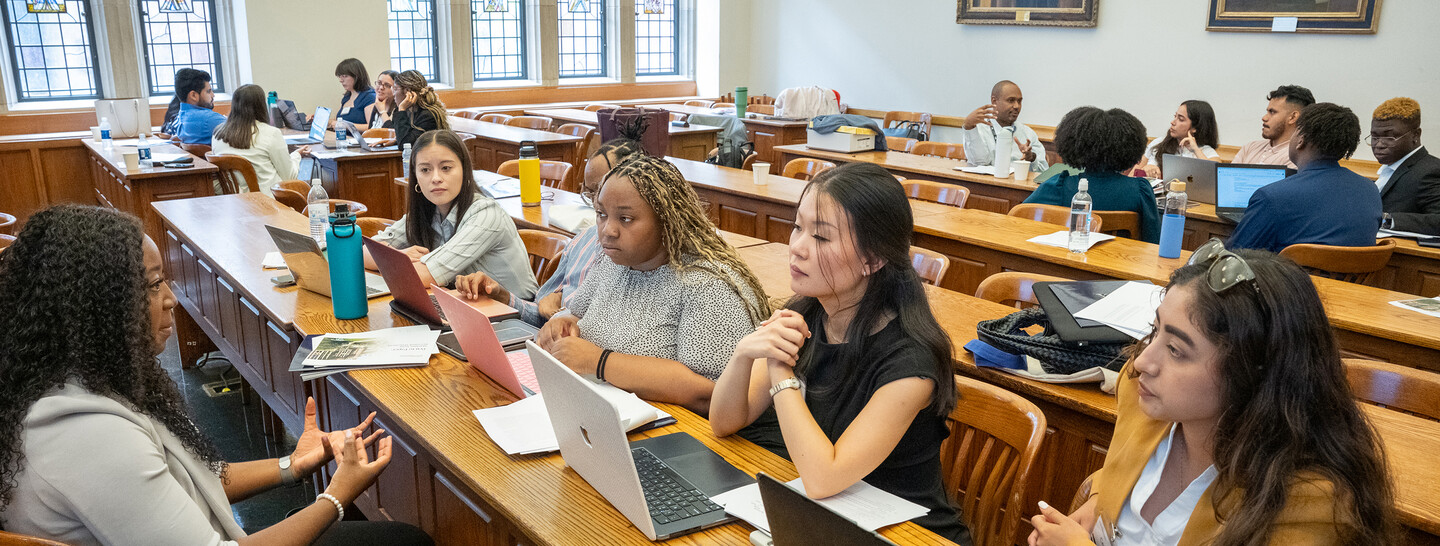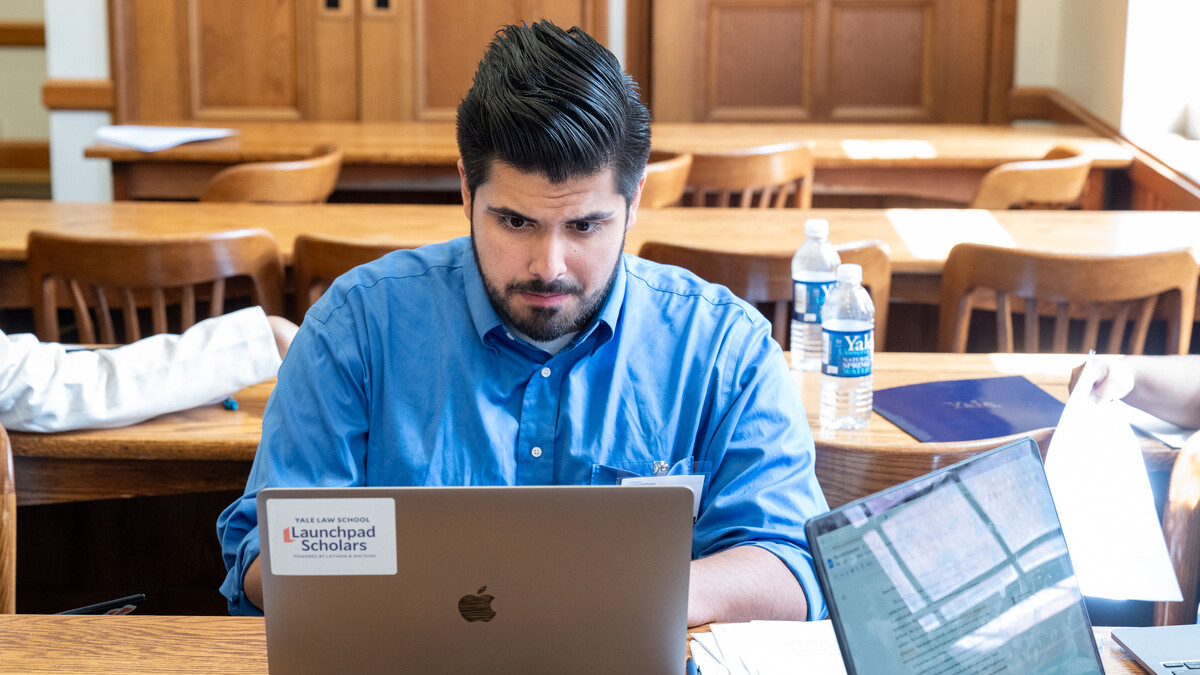The yearlong program, which launched in 20226, is designed to help expand access to the legal profession by ensuring excellent applicants from all backgrounds gain the tools and resources they need to successfully apply to the law schools of their choosing. The comprehensive, cohort-based program is a collaborative effort of Yale Law School and Latham & Watkins.
Throughout the year, participants receive one-on-one mentorship, LSAT preparation, and step-by-step guidance through the application process.
This past June, the first cohort of Scholars convened in New Haven for a week of mock classes, visits to legal employers, and networking with Yale Law students, faculty, and admissions officers. This week-long “Residential Institute” at Yale Law School represents the program’s capstone.
The Launchpad Scholars Program is the second pipeline-to-law-school program established at Yale Law School during the tenure of Dean and Sol & Lillian Goldman Professor of Law Heather K. Gerken. The Access to Law School Program7, led by J. Skelly Wright Professor of Law James Forman Jr., is open to New Haven residents, while Launchpad is open to students across the U.S.
The pipeline programs echo the School’s larger effort to open access to the legal profession. Along with the Hurst Horizon Scholarship Program8, a first-of-its-kind need-based financial aid program, they are designed to support a wider range of applications to law schools and break barriers standing in the way of law school for students across the country.

“Applying to law school is hard, and applicants with familial and financial resources have a significant advantage over those without,” said Associate Dean of Admissions Miriam Ingber. “Programs like Launchpad Scholars help ensure that applicants from all backgrounds can maximize their opportunities. Working with our incredible first cohort of Scholars has only underscored for me how much they have to contribute to the legal profession. Not only has it been a joy to get to know the Scholars, but I have been awed by the efforts and enthusiasm shown by so many of my Law School colleagues and the lawyers and staff at Latham.”
“I am thrilled by the impact of the Launchpad Scholars Program,” said Michèle Penzer ’93, Partner and Global Recruiting Committee Chair at Latham & Watkins. “At Latham, we believe in fostering diversity and providing opportunities for talented individuals from all backgrounds. By investing in this program, we are helping to break down barriers to legal education and to enrich the profession with diverse perspectives. The passion and potential of these scholars truly inspires, and we are honored to support their journey toward becoming future leaders in law.”
For Chen, this immersive experience was life-changing.
“Everyone in the program is passionate about access to resources and is invested in our success and believes in us,” she said. “Every aspect of the program is crafted with intention. Without this program I wouldn’t have taken the LSAT. I learned a plethora of skills and lessons, from briefing a case to unspoken rules in the workplace.”







